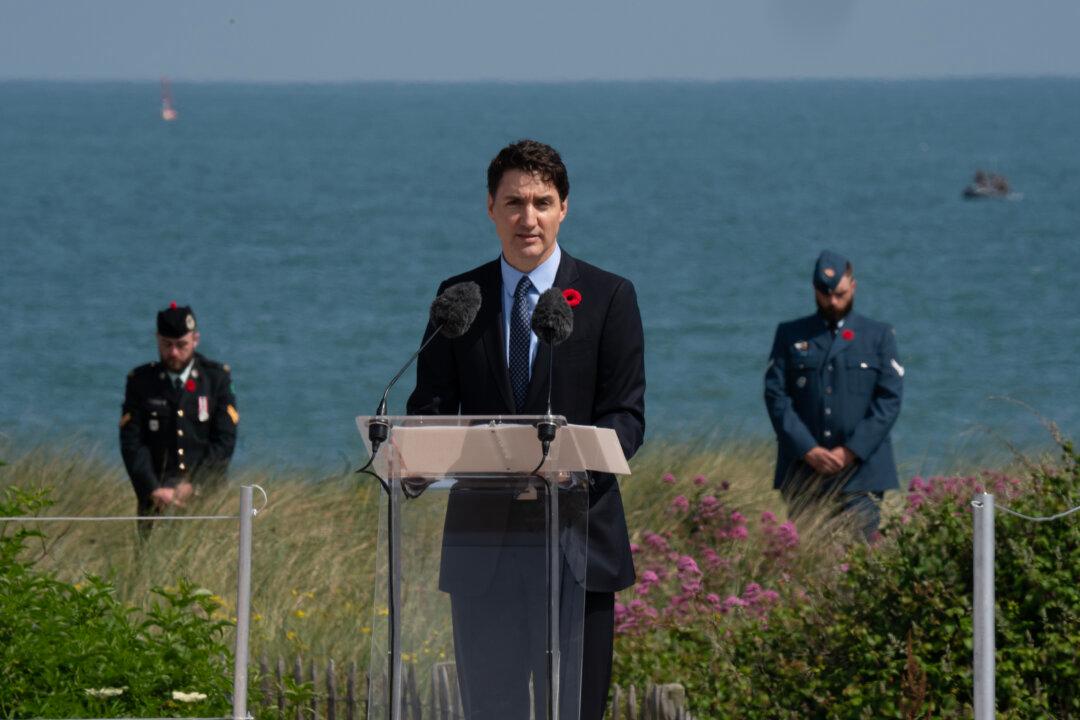The sun was shining on the beaches of Normandy on June 6 morning as a Canadian ceremony to commemorate the 80th anniversary of D-Day got underway in Courseulles-sur-Mer, France.
Prime Minister Justin Trudeau, his French counterpart Gabriel Attal and Prince William were among dignitaries visiting Juno Beach, where flags bearing the Maple Leaf fluttered in a gentle breeze.





